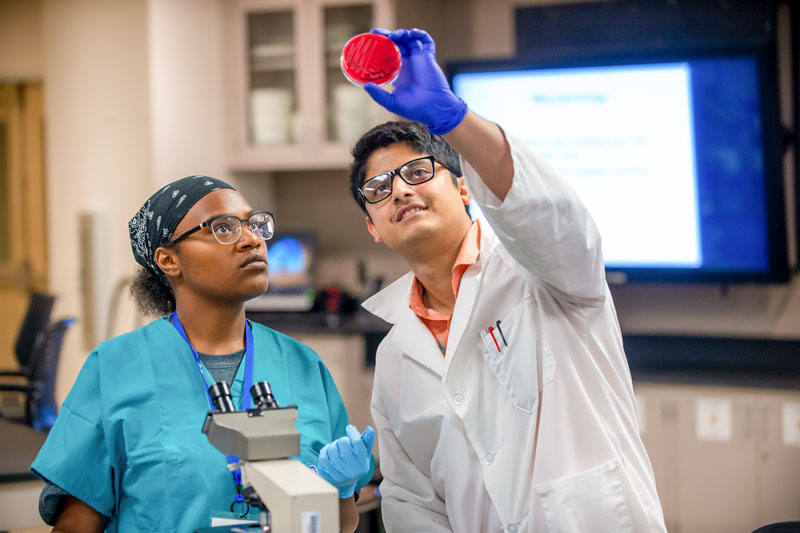
When MEDCAMP kicks off July 6, 16 students from Kent State University will attend through a new scholarship program that enables them to experience the three-day program free of charge. This was made possible by Felix Kumah-Abiwu, Ph.D., the founding director of the Center for African Studies and an associate professor in the Department of Africana Studies at Kent State.
Dr. Kumah-Abiwu happened upon the MEDCAMP webpage while searching NEOMED's website. He quickly decided that he wanted to support the program and provide opportunities for his students at Kent State to attend.
Two factors motivated his decision.
“First, the experiential learning opportunity MEDCAMP provides students, especially students from groups that are underrepresented in the medical professions,” said Dr. Kumah-Abiwu. “Second, the devastating effects of the COVID-19 pandemic on many black and brown communities amid the social justice protests that occurred across the country after the death of George Floyd. These factors shaped my motivation to find ways of giving back to my community and help address racial disparities in health.”
Dr. Kumah-Abiwu submitted a grant proposal to the Social Justice Grants Initiative of Dominion Energy Charitable Foundation, and was awarded the grant with the support of the Kent State University Foundation. His efforts will allow 16 students to attend MEDCAMP and get hands-on training and an inside look at the duties of a health professional.
“With this extraordinary opportunity, I expect the interest of the students in the fields of basic science and medicine to be enhanced,” said Dr. Kumah-Abiwu. “Our students will also gain further knowledge and hands-on experience as they interact with physicians, nurses, medical students and other health care professionals throughout the MEDCAMP program."
Dr. Kumah-Abiwu also plans to help keep the MEDCAMP cohort together to build a “medical learning community.” As he puts it, the ultimate goal is to have these students enter the health professions and become changemakers in our underserved communities.